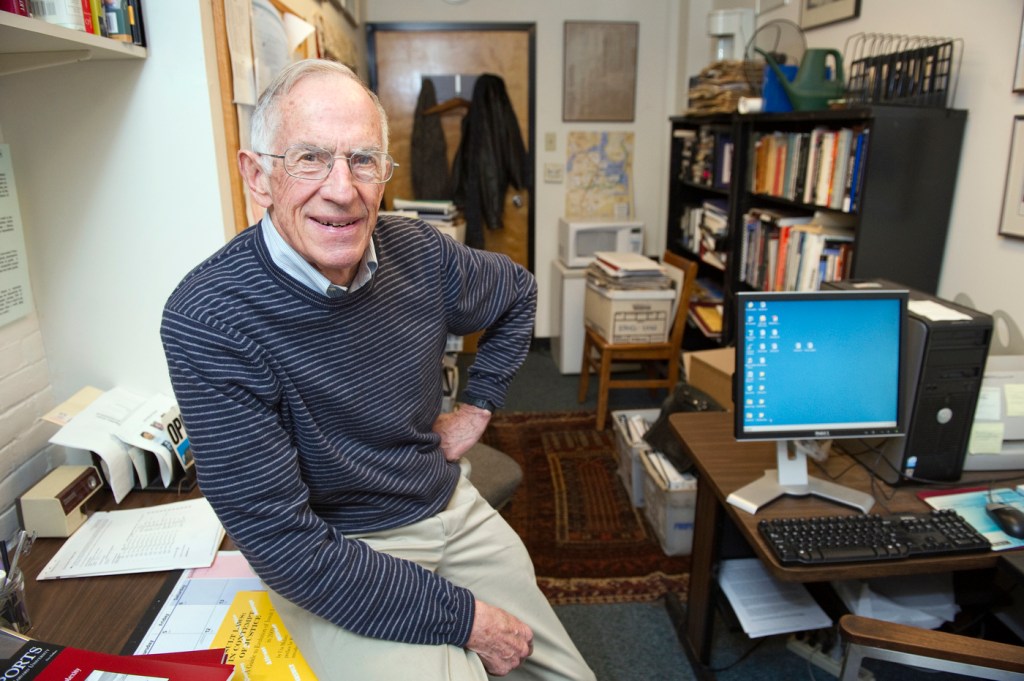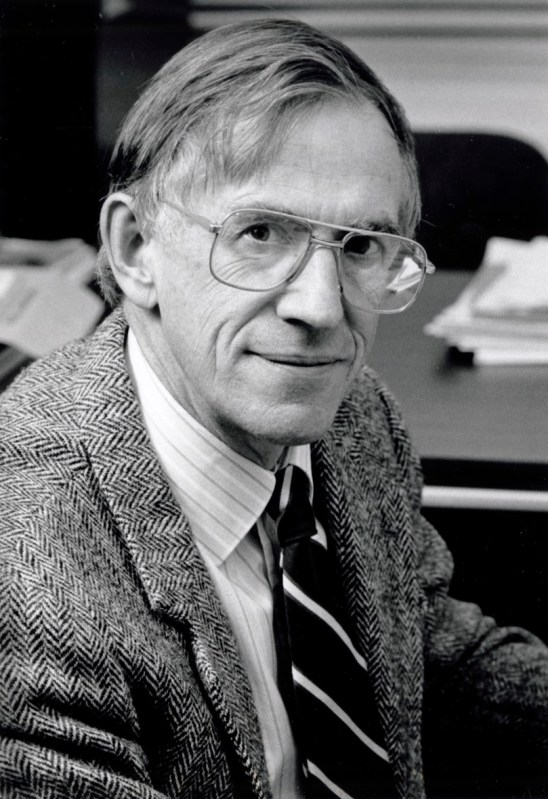Legendary journalism professor Nicholas Daniloff, arrested by the Soviets on false espionage charges in 1986, dies at 89
A former Moscow bureau chief, Daniloff began teaching at Northeastern three years after President Ronald Reagan secured his release amid the Cold War.

Nicholas Daniloff, a longtime Northeastern University professor and American journalist whose arrest by the Soviet Union created international news in the waning era of the Cold War, died on Oct. 17. He was 89.
In 1986, Daniloff was held in the notorious Lefortovo prison for two weeks under false charges that he had been spying on the Soviet Union.
Daniloff was five days away from completing his tenure as Moscow bureau chief for U.S. News and World Report when he met on a wooded lane in the Lenin Hills with a longtime source in what turned out to be a setup. Shortly after the source handed him a package, Daniloff was arrested by a half-dozen men, handcuffed and driven in a mini-bus to the prison, where he was confronted with the contents of the package: Soviet military maps and photos marked “secret.”
Daniloff, who spoke fluent Russian with no American accent, underwent 13 days of interrogation that he would describe as “mild torture” before returning to the U.S. in an exchange for a K.G.B. agent who one week earlier had been captured (and quickly admitted to being a spy) in New York. His wife, Ruth, a British journalist, organized international protests that helped secure his release.

“In my living room I have a photo of Nick sitting with his family and [President Ronald] Reagan after he got out,” says Peter Mancusi, a Northeastern associate teaching professor of journalism who is married to Daniloff’s daughter, Miranda. “You go up to Nick’s house in Vermont, and there’s a photo on the wall of Nick interviewing Nikita Khrushchev, just the two of them.”
As a United Press International correspondent starting in 1961, Daniloff’s coverage of the Cuban missile crisis and other events provided perspective during the Cold War.
“Nick was there for some big moments,” Mancusi says. “You can imagine what it was like being in the Soviet Union. That was not an easy assignment — but that wasn’t his whole career. He covered Watergate, he worked in Washington, he had other stops along the way and he distinguished himself at every stop.”
In 1989, Daniloff began a quarter-century run of teaching journalism at Northeastern. He also directed the journalism program for several years.
“He loved to teach,” says Mancusi, who served as a reporter and editor at The Boston Globe for more than 20 years. “I got to see him in action when I was a guest speaker at his journalism ethics class, and it wasn’t hard to see that his students held him in high regard.
“Nick could be somewhat formal in his demeanor. He was certainly that way with his students, and I think they like that about him. He was very precise and he treated them as adults.”
Jonathan Kaufman, a Pulitzer Prize-winning reporter, editor and author who has served as professor and director of Northeastern’s School of Journalism since 2015, asked Daniloff in retirement to speak with students.
“He would talk about the challenges of journalism,” Kaufman says. “Here was someone who faced one of the most difficult situations a journalist can face, and the way he reflected on it was invaluable to show students that journalism matters.
“Nick brought a level of professionalism and real-world experience and a strong sense of ethics to the School of Journalism. He added a level of professionalism and morality to his classes and the students he taught which was unmatched by anyone else. He was a truly heroic figure and he shared his experiences in his lessons with his students.”
Mancusi notes that the end of the Cold War in the early 1990s allowed many former Soviet scientists and researchers to move to the U.S.
“A whole bunch of them settled around the Boston area and they became very close friends of the Daniloffs,” Mancusi says. “They continued the relationships they began in the Soviet Union. It was pretty special to see.”
Daniloff is survived by daughter Miranda, son Caleb, five grandchildren and two great-grandchildren. His wife Ruth died in January at age 88.
